For family historians who are researching Welsh ancestry, the relatively small pool of Welsh surnames presents unique problems as does the shifting anglicised spellings of place names. Thankfully, there are lots of Welsh ancestry websites with useful guides to help you navigate these common problems and pitfalls and locate Welsh ancestry records.
Welsh ancestry: The best websites
1. National Library of Wales (NLW)
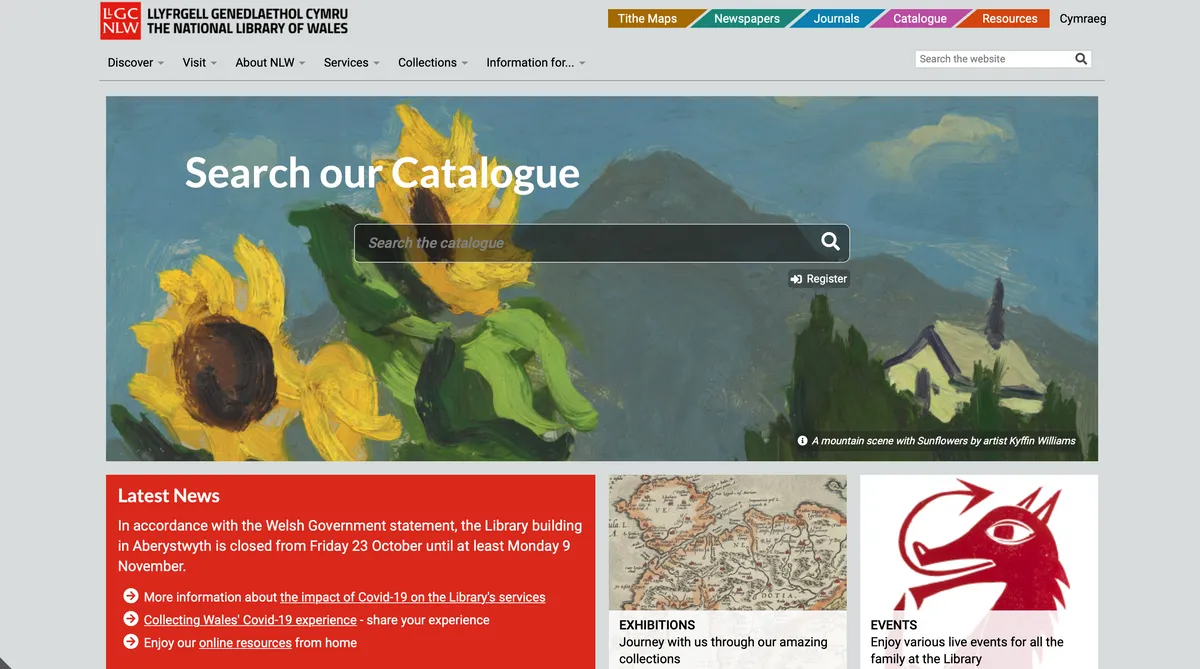
The main homepage of the National Library of Wales signposts all kinds of information aimed at beginner Welsh ancestry researchers, plus descriptions of the library’s vast holdings – it’s home to around 950,000 old photographs, 1,500,000 old maps, 5,000,000 digital images and e-resources, and 15km of archives. It holds the Church in Wales Archive, preserving vital Welsh ancestry records such as registers of baptisms, marriages and burials.
One of several important online tools is the Welsh wills probate database, which provides digital images of wills proved in Welsh ecclesiastical courts before the civil probate system was introduced in 1858. Other online collections include crime and punishment records and tithe records (see below).
2. Ancestry
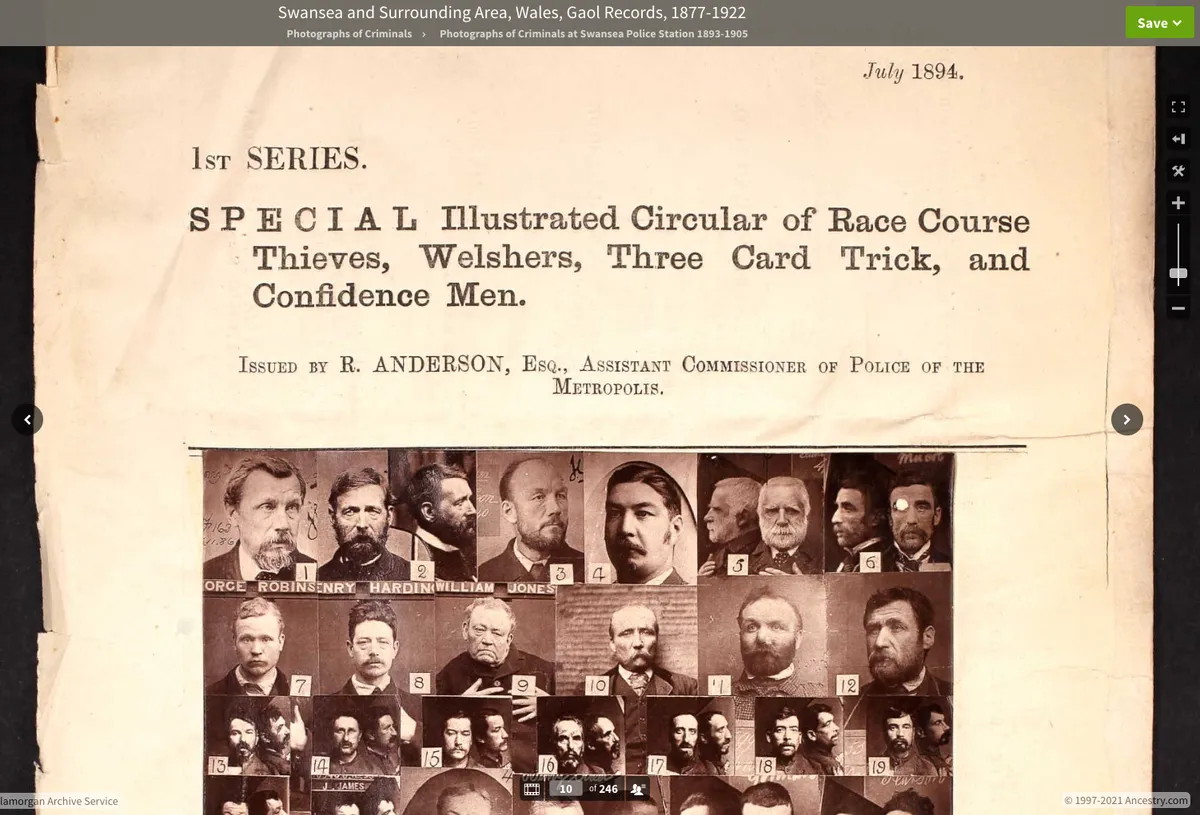
As well as now offering access to the millions of Welsh parish baptism, marriage and burial records that were previously exclusively on Findmypast, Ancestry also offers an index to the Cardiff Police Constabulary registers (1904–1920), Glamorganshire County Asylum records (1845–1920) and more than 35 million electoral register records for Glamorganshire (1832–1978). In addition, the website has gaol records for 1877–1922 (pictured), Poor Law union records (1836–1916) and electoral registers (1839–1966) for Swansea and the surrounding area, as part of an agreement with West Glamorgan Archive Service.
3. Archives Wales
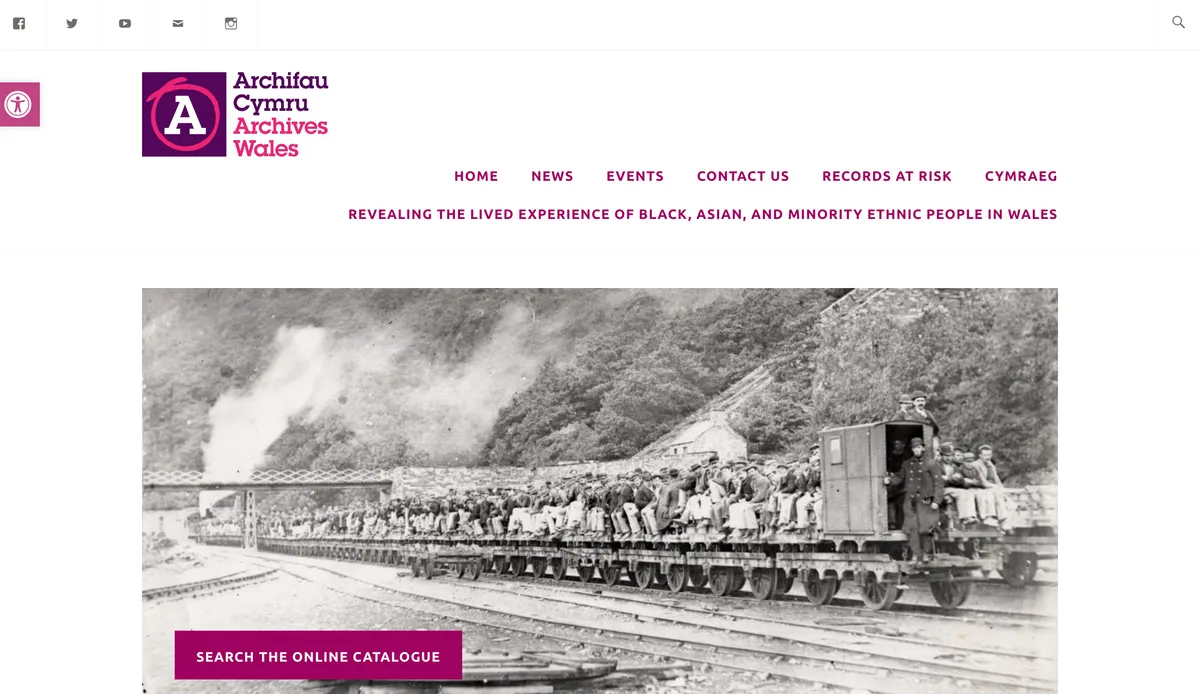
This is the single-search hub to more than 7,000 Welsh ancestry collections across 21 archives in Wales – the equivalent of The National Archives’ Discovery – and also the body which leads all kinds of cross-archive projects. The ‘Find your archive’ tab leads to a list of contributing archives from Aberystwyth University Archives to Wrexham Archives and Local Studies, with descriptions of key collections, contact details and links.
4. Welsh Newspapers
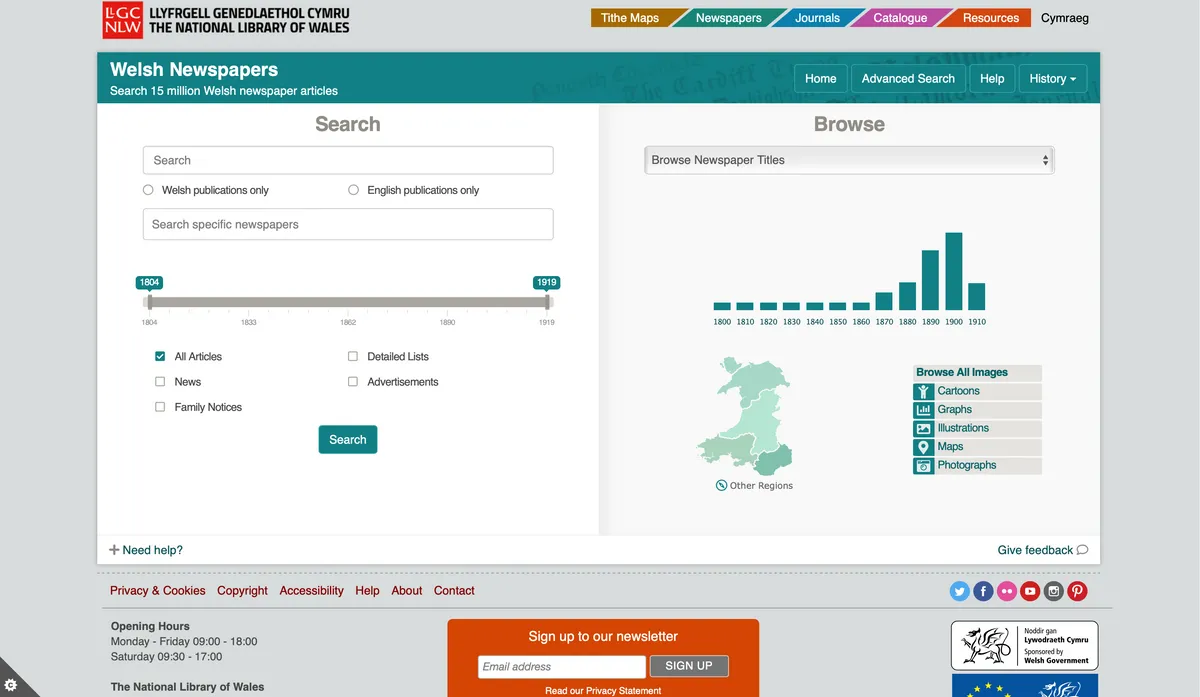
Another excellent source for tracing Welsh ancestry is old newspapers. Your ancestors may be mentioned in the local newspaper if they were prominent in the community, if they got into trouble with the law or if they simply appeared in a birth, marriage or death announcement. This website grants access to around 15 million articles and 1.1 million pages from a huge range of Welsh- and English-language titles. Unlike the British Newspaper Archive, access is completely free. There’s also the NLW’s sister website Welsh Journals, which provides access to journals published in Wales during the 19th and 20th centuries.
5. Welsh Coal Mines
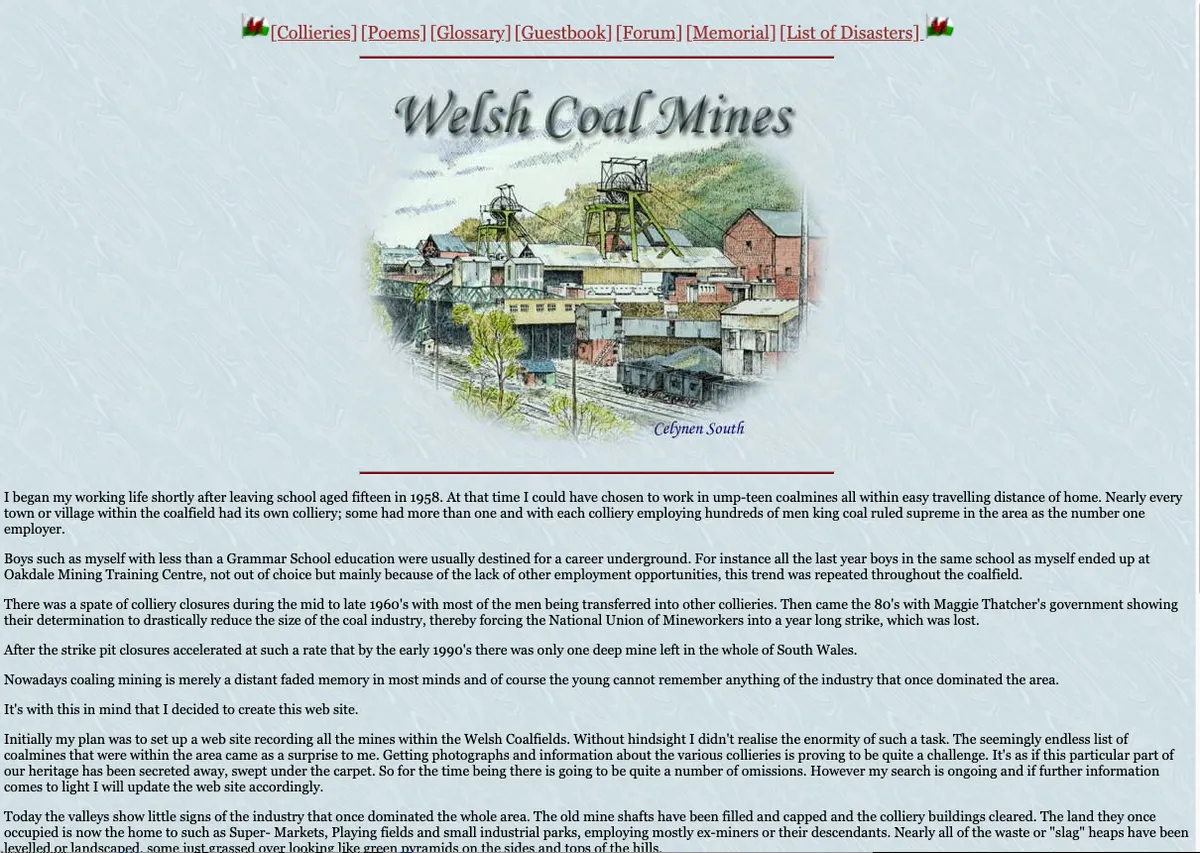
Many of your Welsh ancestors may have been miners, so try Welsh Coal Mines, a catalogue of mines situated within Welsh coalfields. It also has a database of over 6,000 accidents where there were five or more fatalities. Other resources for Welsh mining include Coalfield Web Materials, Digging up the Past, the Welsh Mines Society and the National Coal Museum for Wales.
6. Welsh Mariners
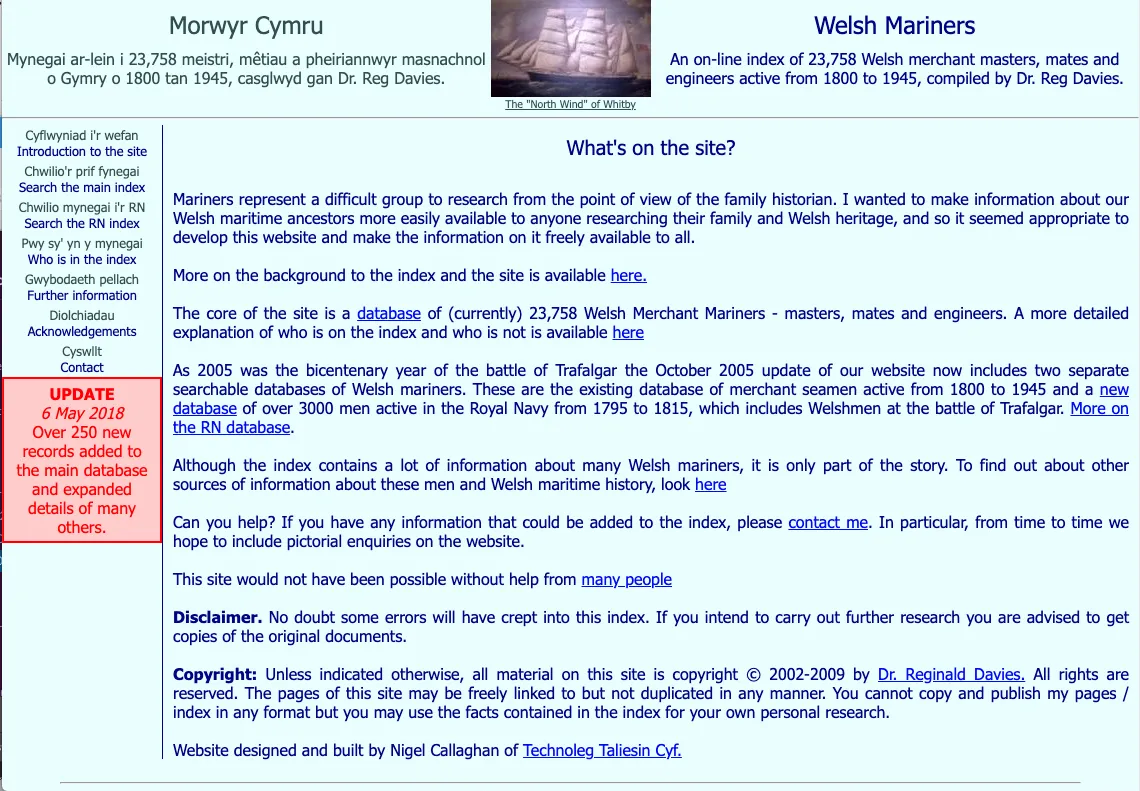
If your Welsh ancestors went to sea rather than down the mines, there a very useful database at Welsh Mariners, which has an index to around 23,500 merchant mariners active between 1800 and 1945, making it an unmissable source for tracing nautical Welsh ancestors. Another useful free database can be found at Swansea Mariners.
7. Crime and Punishment
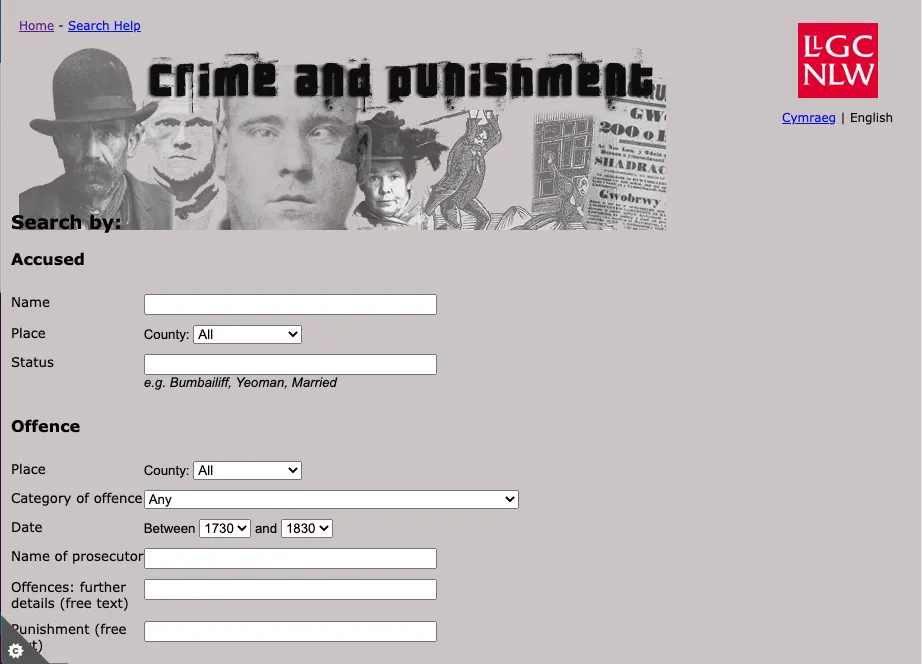
The crime and punishment database from the National Library of Wales includes records of those tried in the Great Sessions in Wales from 1730 to 1830. Although any crimes could be tried here, in reality most petty crimes were tried in local sessions and those records will now be held in Quarter Sessions collections at local record offices. The crimes in this database are more likely to be more major or capital crimes.
8. FamilySearch
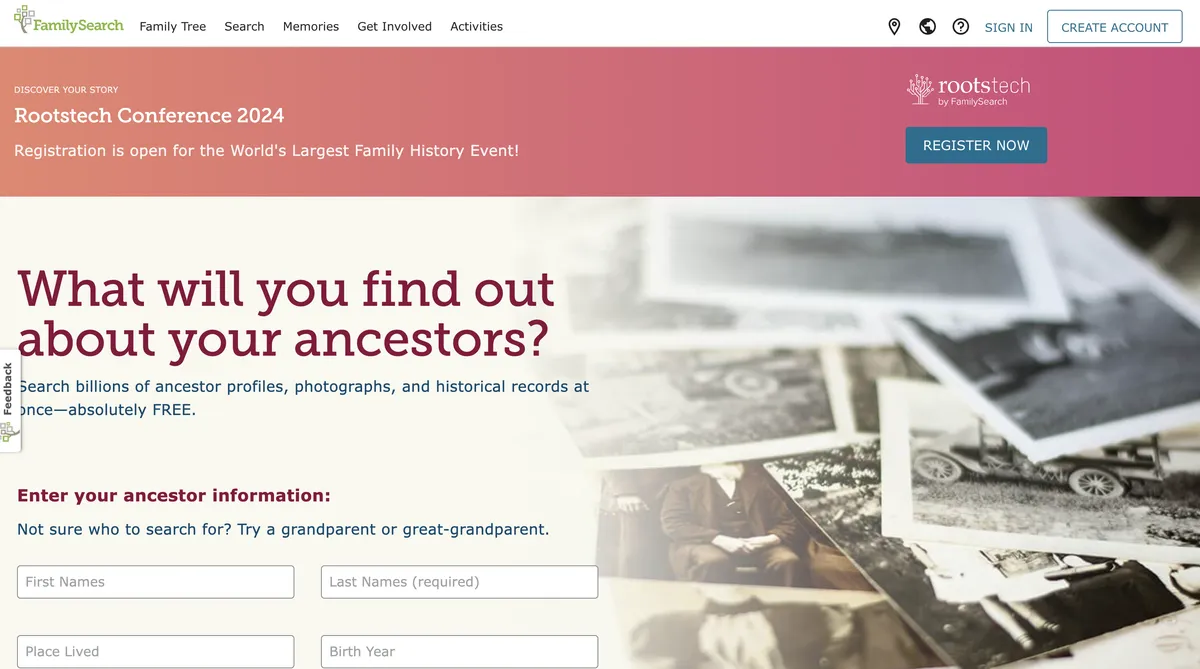
This website lets you search across a number of record sets, including birth, marriage, death and census for free. You can filter your search by country to restrict results to Welsh records. The site also has useful guides to Welsh research in its wiki with clickable maps showing administrative regions.
Further sites for Welsh ancestry
To find out more about where your Welsh ancestors lived, start with Welsh Tithe Maps on the NLW website. It holds over 300,000 Welsh tithe maps records and their accompanying apportionment documents. The People’s Collection Wales is a project led by the NLW, National Museum Wales and the Royal Commission on the Ancient and Historical Monuments of Wales. It’s a place where anyone can upload images and stories relating to the past. Material includes records, artefacts, films and audio files drawn from national collections, as well as personal items.
You can also find out more about a place but searching for it in the UK Gazetteer on the Vision of Britain website.
Findmypast has millions of Welsh parish records, although its exclusivity deal with the National Library of Wales has now elapsed meaning that the same parish records are also available on TheGenealogist as well as Ancestry.
North East Wales Archives is another good county archive website if you're tracing Welsh ancestry in the north-east. It has digital collections of Denbighshire borough charters, photographs and enclosure maps.
Popular ancestry website Genuki has county guides to resources, societies, archives and pitfalls caused by boundary changes and the Welsh naming system. The FamilySearch Wales Genealogy wiki offers Welsh ancestry advice and links to free records on FamilySearch and North Wales BMD.
Other handy Welsh ancestry websites and bodies include the Dictionary of Welsh Biography, the Association of Family History Societies of Wales and the Welsh Family History Archive.
To find out more about your Welsh ancestry, don't miss local family history society websites, such as those covering Clwyd, Dyfed, Gwent, Gwynedd and Powys. Joining a family history society based in the area you are researching can be a great way to tap into local knowledge and discover unusual record sets that will help you find out more about your family history.